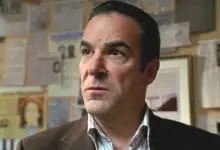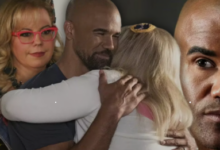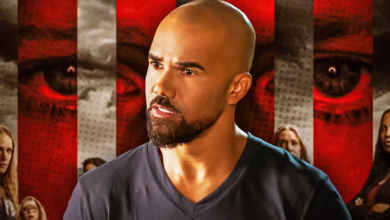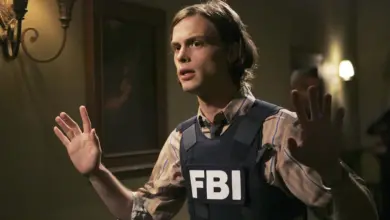In a separate interview, Patinkin explained why he took the role: the financial stability of being a network series regular. “I was brought up to worry about [money], even if you don’t have to,” he told Thane Rosenbaum at the 92nd Street Y. Explaining his acting process, Patinkin said he doesn’t “believe” the material on the page, instead “infus[ing his] own reality under” the performance. Calling his Criminal Minds plots “misogynistic,” he said he “had to go mentally” to a place “beyond darkness.” Patinkin admits “I’m glad I got the money… but I’m not proud of it.“
For as long as human beings have told each other stories, they’ve been a vehicle to examine fear. Criminal Minds is, at times, a horror show. However, the appeal of any procedural series comes from watching heroes solve a high-stakes problem in under an hour’s time. When those heroes are law enforcement, the show can also allow viewers to pretend the criminal justice system works as efficiently as it’s supposed to. Real-world institutions and the people who run them can often let people down, but fictional characters never can. To fans of the series, Jason Gideon was one such hero, in large part because of Patinkin’s performance choices.
After 345 of those hours, asking what a series like this actually accomplishes is a fair question. In Season 17 of Criminal Minds: Evolution, “Piranha” is a cleverly crafted episode. However, the story itself is so disturbing and depressing, even diehard fans may question if the show doesn’t go too far in the name of raising the stakes and surprising the audience. At some point, telling these kind of stories goes beyond the examination of violence and fear, and instead comes off as a celebration of it. Such decisions, of course, are left to each individual viewer, as no one is forced to watch Criminal Minds.
With “Piranha,” the storytellers were thinking about the characters first. “It’s a victory because we’ve caught him,” showrunner Erica Messer told CBR, “but it all feels…like a loss, and we don’t have that often.” Mandy Patinkin’s criticism of Criminal Minds comes from the perspective of a person who had to bring those characters to life. At the 92nd Street Y, he clarified fans aren’t “wrong” for loving the show. Rather, his decision to leave Criminal Minds was about what he had to do in order to bring Jason Gideon to life. “I needed to leave,” Patinkin continued, “to save my life.”
Mandy Patinkin’s last scene as a part of the Criminal Minds cast seems almost to be a reflection of the actor’s need to leave. Gideon is seen driving off to parts unknown in search of a kind of happiness he couldn’t find in the BAU. However, that’s not the last time the character appeared in the show. Ben Savage played Gideon in both flashbacks and in Criminal Minds’ (original) final season as a vision seen by David Rossi. A few years after Patinkin shared his feelings about Criminal Minds, Messer and her writers killed off the character.
Patinkin, of course, didn’t return for Season 10’s “Nelson’s Sparrow,” so the murder happened off-screen. During a later scene in the morgue, the coroner mentions she left the body “covered, out of respect” as an excuse to not show his face. The episode was actually a celebration of the series. Killing Gideon actually kept the character alive in the series, as it gave characters a germane way to talk about him. Despite Patinkin’s critique of Criminal Minds, there appears to be no bad blood. They could’ve diminished Gideon’s role in the BAU’s history in favor of Rossi or other characters. Instead, they take every chance they get to talk about how important he was to them.
Still, Gideon’s death was one of Criminal Minds‘ saddest. Most stories, especially long-running ones, need character deaths to maintain a sense of stakes. Since Mandy Patinkin left, the series has experienced a lot of cast turnover for myriad reasons. Yet, no character remains as relevant to the series and its characters as Jason Gideon. The character Patinkin brought to life is held up as the gold standard of who the series’ heroes can be. The actor’s personal feelings aside, that kind of legacy is nothing to be embarrassed about.









